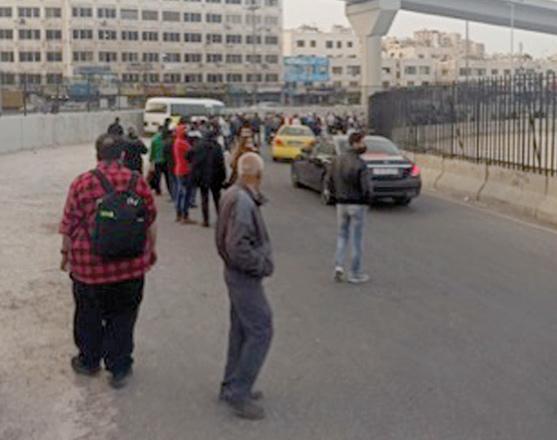- Local News
- Sun-2021-03-28 | 01:38 pm

Nayrouz News Agency :
For many workers, both in public and private sectors, who do not own a vehicle and depend on public transport, commuting back home before the 7pm COVID curfew has become an ordeal.
The government’s decision to limit public transport capacity by 50 percent makes it more challenging for commuters to reach home on time, several citizens complained.
"Getting home isn’t easy, it takes me a couple of hours each day,” said Ward, who preferred to go by single name.
"The early curfew makes life more difficult, especially that my working hours were not reduced,” Ward, who works at a warehouse in Amman, told The Jordan Times.
For Maryam Arafat, a young Jordanian woman who finishes work around 6pm on most days, the only option is to take a day off from work if she needs to run errands since waiting in the long public transport queues kills any free time she might have.
The government on March 13 extended the curfew hours during weekdays until further notice in light of the spike in COVID infections.
This curfew prohibits the public movement across the Kingdom between 7pm and 6am, while businesses are allowed to operate between 6am and 6pm.
Osama, a daily commuter who prefers to go by single name, lamented the "abnormal” daily traffic and long queues on bus stops. While his workplace is only nine kilometres from his house, it takes him around one to two hours to reach home daily, he said.
"I usually arrive after the curfew starts. I can no longer help my family with groceries or purchase personal items. Seeing my friends is not an option either,” he added.









